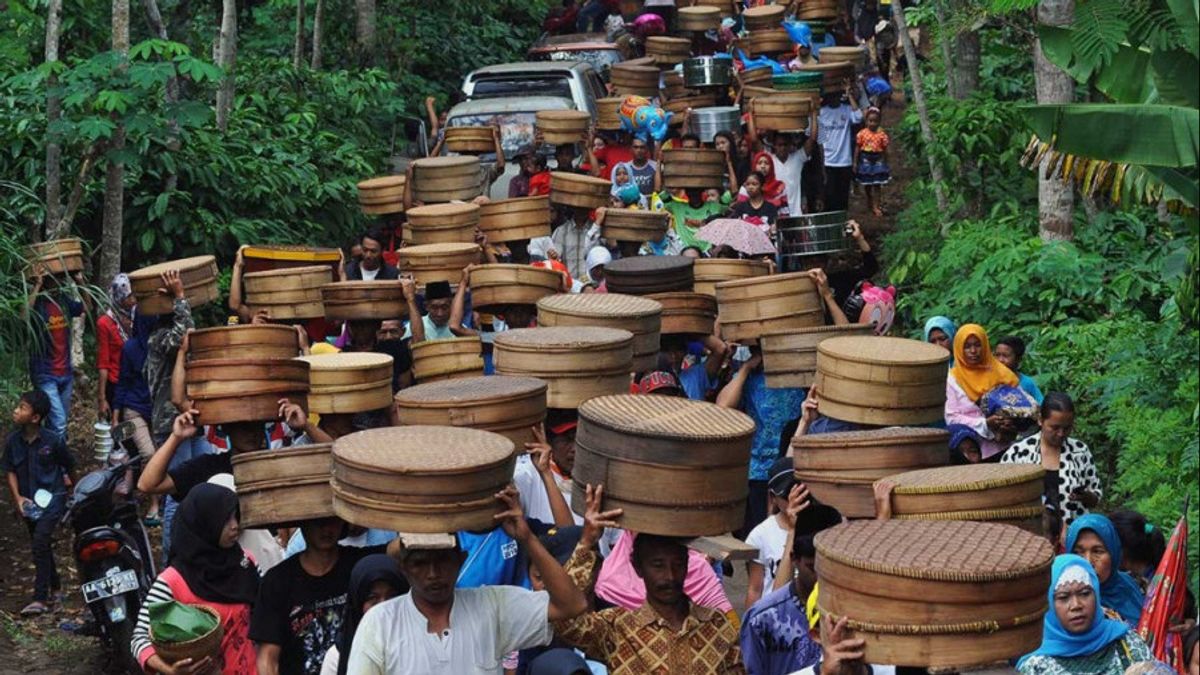YOGYAKARTA To date, there are many Javanese traditions that have been held before the month of Ramadan. The Javanese tradition before fasting has different philosophical goals and meanings. Because it has a good meaning, many Javanese people, especially those who are Muslim, have done it until now and passed it on to their children and grandchildren.
Although the Javanese tradition that is held in each region is different, there are several activities that are widely known by the community. The tradition that was held before the fast is as follows.
Padusan is a word in Javanese, in Indonesian padusan meaning bathing. As the name suggests, this tradition was held in the form of a shower. What distinguishes from bathing in general is the intention.
Padusan is intended to clean up all dirt, both physical and spiritual impurities. It is hoped that the Javanese people who perform padusan will be clean and holy during fasting. The padusan culture is usually carried out a few days before Ramdhan's first fast.
Quoted from the official website of Yogyakarta Province, the dugeran is a Javanese tradition in the form of a ceremony that is held ahead of the arrival of the moon. Usually the dugeran is held a few days before Muslims perform their first fast. This tradition is the result of three-cultural mixing, namely Java, Chinese, and Arabic.
Dugeran himself was affiliated with loud noises originating from bedugs or cannons. Historically, the dugeran arose due to differences of opinion regarding the date of the start of the month. To equalize people's perceptions, it started with the drumming at the Great Kauman Mosque and continued with the announcement of the beginning of fasting in the mosque, followed by other mosques.
Megengan is a tradition in the form of pilgrimages to ancestral graves. This tradition is mostly carried out by the people of East Java. Megengan was also carried out with a congratulatory event by serving apem cakes and banana kings.
Megengan itself comes from the Javanese language which means holding back. By holding it in a long way, it is hoped that the community can begin to hold back their lust during the month of Ramadan. Usually, it lasts a week before the month.
Dhandhangan is similar to the dugeran. This tradition is in the form of a people's festival with the peak of the event in the form of beating the beduk at the Kudus Tower Mosque, Kudus, Central Java. Dhandhangan himself was also interpreted as a sign of the gathering of the students at the Kudus Tower Mosque.
Historically, the bedug that was hit during the dhandhangan meant Sunan Kudus would make an important announcement regarding when fasting began.
The people of Jepara, Central Java also have a tradition before fasting which is called westerly. The western tradition is in the form of a prayer that is carried out by the Muslim community after the Maghrib prayer. This tradition is related to the story of Queen Kalinyamat. It is said that westerly emerged as a final tribute to the husband of Queen Kalinyamat who died before the month of fasting. To commemorate and at the same time welcome the month, the people of Jepara then held a wester.
The tradition is similar to mepangan. Megengan was held in Yogyakarta and several other areas in Central Java. The tradition of self-similarity is in the form of a pilgrimage to the graves of parents or relatives who died first. The community will hold prayers and clean the graves and sow flowers. In addition, some people will also give their homes as a form of gratitude for the sustenance given by God Almighty. This tradition is usually held a month before the month.
In addition to Javanese traditions before fasting, visit VOI.ID to get other interesting information.
The English, Chinese, Japanese, Arabic, and French versions are automatically generated by the AI. So there may still be inaccuracies in translating, please always see Indonesian as our main language. (system supported by DigitalSiber.id)













